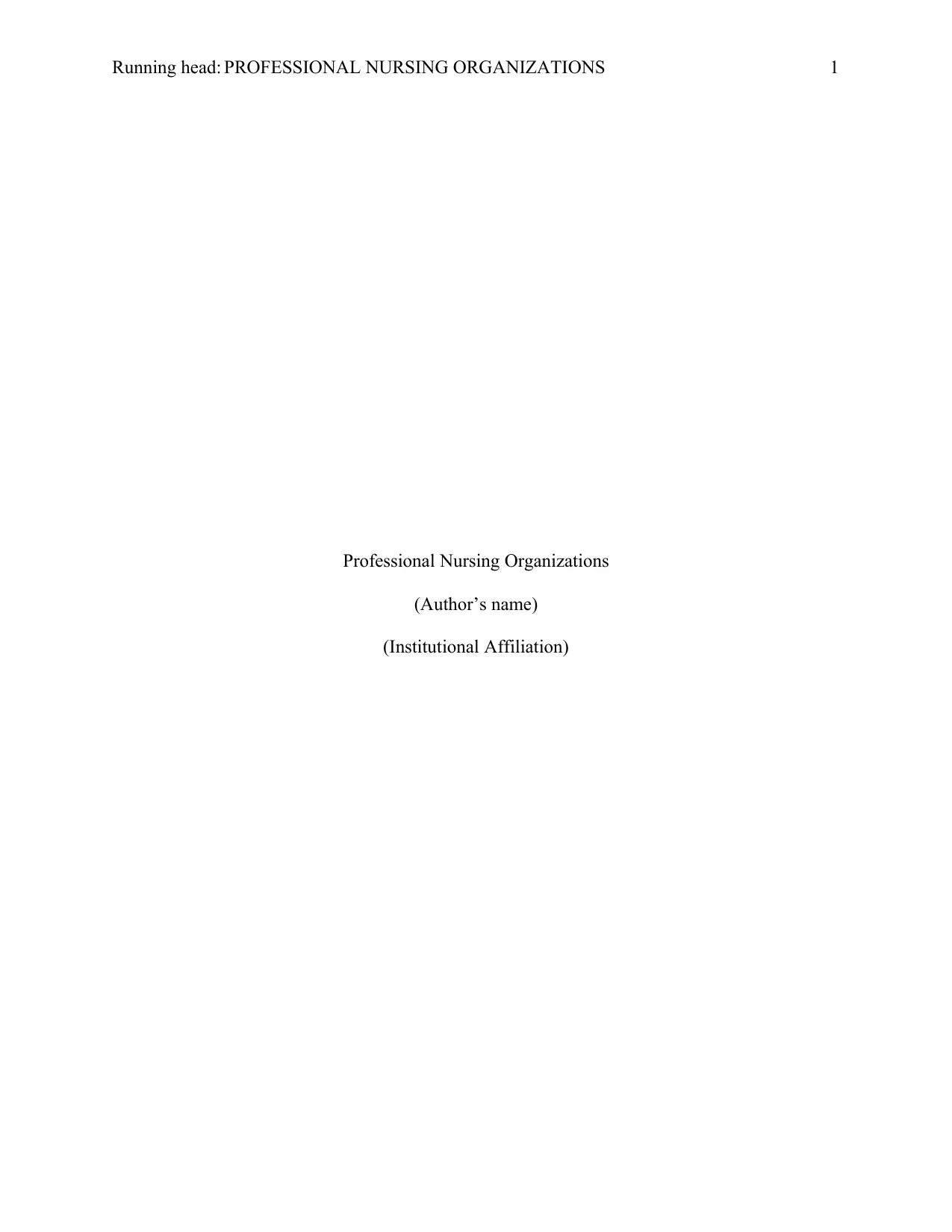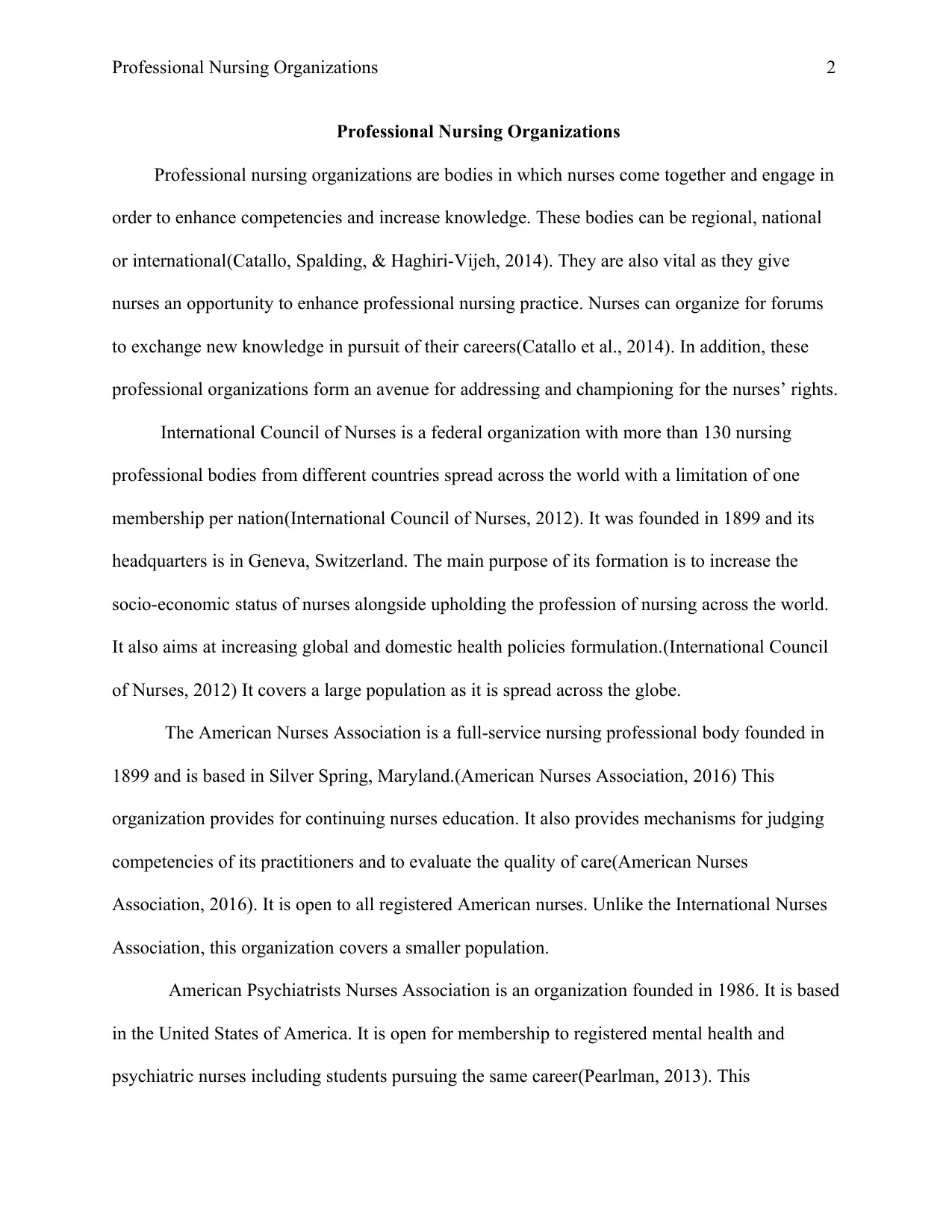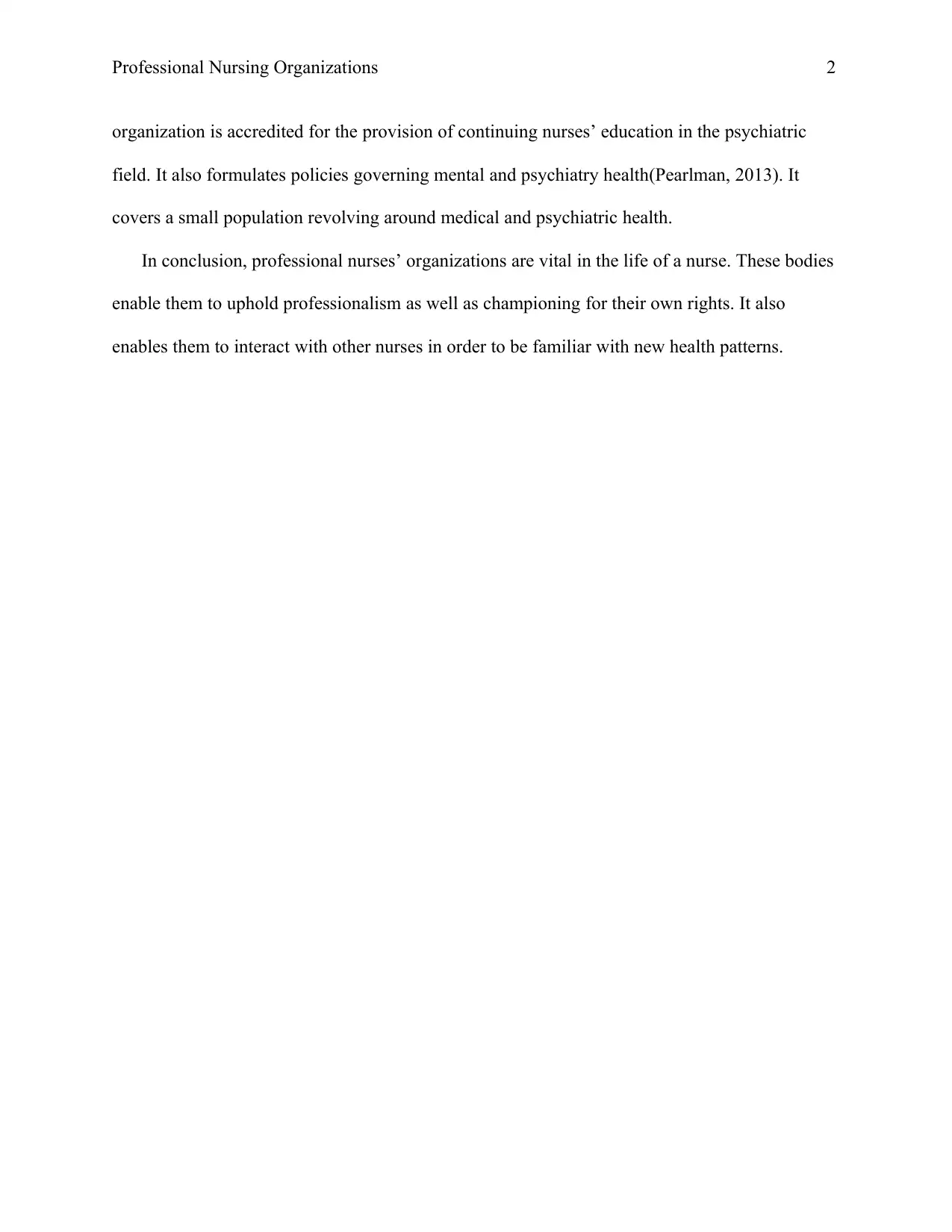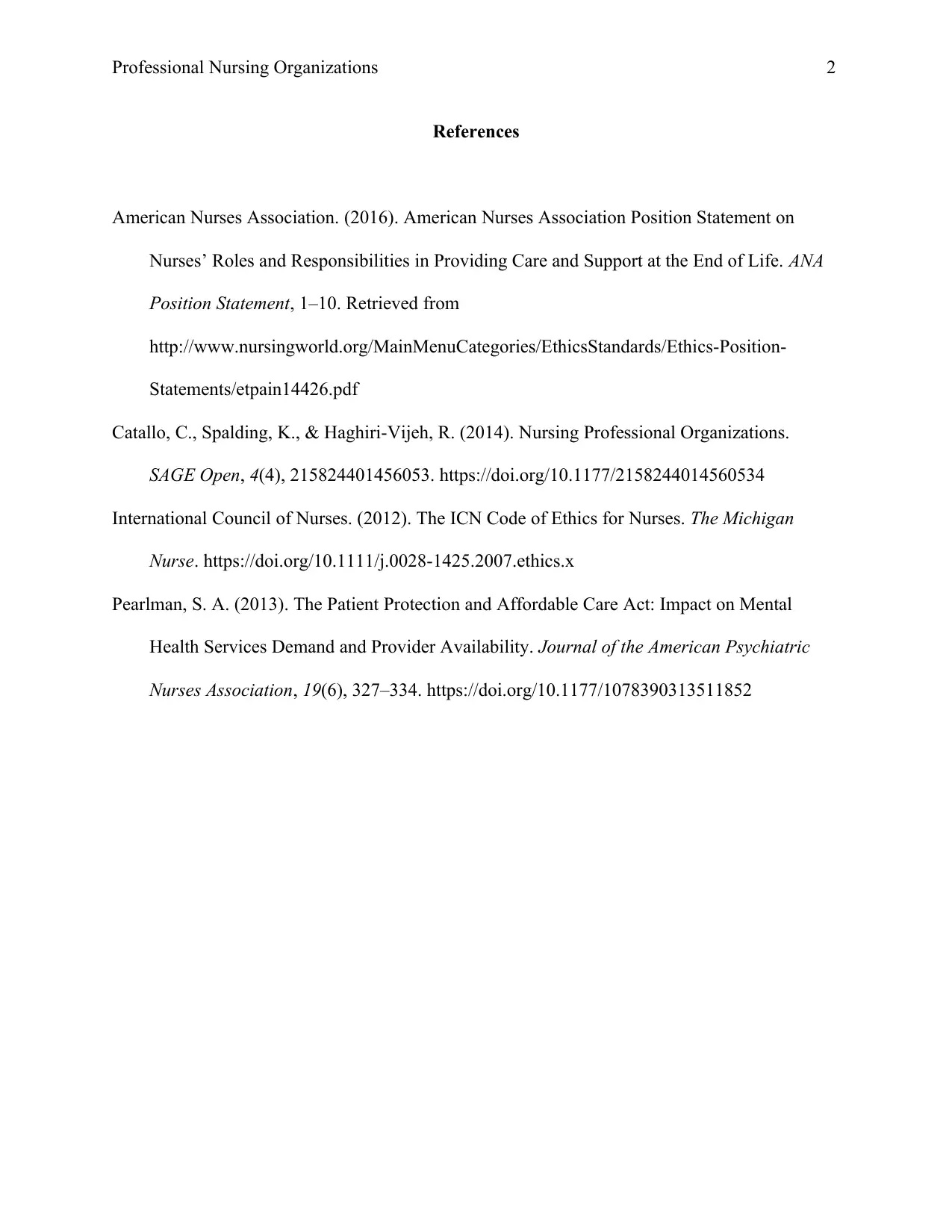Detailed Report on Professional Nursing Organizations and Their Impact
VerifiedAdded on 2023/06/04
|4
|610
|215
Report
AI Summary
This report examines the significance of professional nursing organizations in enhancing nursing competencies, increasing knowledge, and advocating for nurses' rights. It highlights the roles of key organizations like the International Council of Nurses (ICN), the American Nurses Association (ANA), and the American Psychiatric Nurses Association (APNA). The ICN, founded in 1899, focuses on global health policies and the socio-economic status of nurses. The ANA provides continuing education and evaluates the quality of care for registered American nurses. The APNA, founded in 1986, specializes in psychiatric nursing education and policy. The report concludes that these organizations are essential for promoting professionalism, facilitating knowledge exchange, and supporting nurses' rights within the healthcare system. It also includes references to support the findings.
1 out of 4











![[object Object]](/_next/static/media/star-bottom.7253800d.svg)